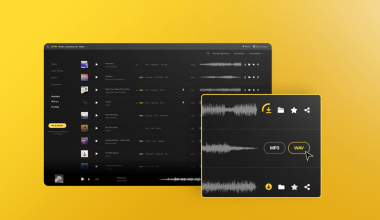Songwriting is both an art and a craft. Whether you’re a seasoned musician or just starting out, finding fresh songwriting ideas can sometimes feel challenging. In this guide, we’ll explore actionable techniques, unique prompts, and inspiring tips to help you develop compelling lyrics and melodies.
The Power of Personal Experiences
Personal experiences are a treasure trove of songwriting ideas. Think about moments that left a lasting impression—whether joyous, painful, or bittersweet. These moments can translate into raw, emotional lyrics that connect deeply with listeners.
Prompts for Personal Experiences:
- Write about a childhood memory that shaped who you are.
- Describe your feelings during a major life change.
- Explore the story of someone who influenced your life.
Using personal experiences makes your lyrics authentic and relatable.
Observing Everyday Life
Songwriting ideas are everywhere—in the rhythm of daily life, in conversations, or even in quiet moments. Start paying attention to the world around you:
- Listen to snippets of dialogue in coffee shops.
- Observe nature and its changing moods.
- Take note of random encounters that spark curiosity.
Everyday events, when viewed through a creative lens, can inspire unique song concepts.
Explore Themes and Emotions
Songs often center around universal themes like love, loss, hope, and resilience. Start by choosing an emotion or theme you want to explore. Then, think about:
- How that emotion feels physically and mentally.
- Times in your life when you’ve experienced it.
- How others might relate to the same feeling.
For instance, if you choose “hope,” consider imagery like a sunrise or a blossoming flower. These metaphors can enrich your lyrics.
Use Visual and Poetic Imagery
Visual storytelling can take your lyrics to the next level. Instead of stating how you feel, show it through imagery and metaphors.
- Replace “I’m sad” with “The rain paints shadows on my windowpane.”
- Instead of “I’m in love,” say, “Your voice is the melody my heart hums.”
By engaging the senses, your song becomes more vivid and memorable.
Write from a Different Perspective
Experimenting with perspectives can lead to fresh songwriting ideas.
- Write from the perspective of a historical figure.
- Imagine being an object or an animal.
- Tell the story through the eyes of someone you’ve never met.
For example, Taylor Swift’s song “The Lucky One” tells the story of fame from an outsider’s viewpoint.
Draw Inspiration from Other Art Forms
Art, literature, and film can spark incredible songwriting ideas. Consider these prompts:
- Write a song based on your favorite book or movie.
- Use a famous painting as a starting point for your lyrics.
- Let a line from a poem inspire your chorus.
Cross-pollinating art forms can result in truly unique songs.
Collaborate with Other Songwriters
Collaboration is a fantastic way to generate songwriting ideas. Working with another songwriter allows you to:
- Merge different styles and perspectives.
- Share and refine ideas together.
- Get out of creative ruts.
Find local songwriting groups or connect with musicians online to collaborate.
Explore Wordplay and Rhyming Games
Playing with words can open the door to unexpected songwriting ideas. Try these techniques:
- Use a rhyming dictionary to brainstorm lines.
- Experiment with puns, idioms, or unusual phrases.
- Create internal rhymes or surprising word pairings.
For example, instead of a simple rhyme like “fire/desire,” try something less expected, like “fire/tire.”
Addressing current events or cultural themes can make your song powerful and relevant. Think about:
- Issues that matter to you personally.
- Stories in the news that resonate with your audience.
- Social movements that inspire you to speak up.
Songs like John Lennon’s “Imagine” and Childish Gambino’s “This is America” are great examples of music inspired by social themes.
Experiment with Song Structure
Breaking away from traditional song structures can lead to innovative ideas. While the verse-chorus-bridge format is common, consider:
- Starting with the chorus.
- Writing a song with no chorus at all.
- Adding an unexpected instrumental section.
Experimenting with structure can make your songwriting process more dynamic.
Take a Walk or Change Your Environment
Sometimes, the best way to find songwriting ideas is to step away from your usual workspace.
- Take a walk in nature or around your neighborhood.
- Visit a new location, like a park or café.
- Rearrange your workspace for a fresh perspective.
A change of scenery often sparks new creativity.
Write Songs Based on Prompts
Prompts are excellent for jumpstarting creativity. Here are a few to try:
- Write a song about a one-word theme, like “freedom” or “silence.”
- Create lyrics inspired by the phrase, “If only I could…”
- Write about a dream you’ve had recently.
Using prompts eliminates the pressure of starting from scratch.
Reflect on Relationships
Relationships—whether romantic, platonic, or familial—are a wellspring of songwriting ideas. Think about:
- A specific moment that defined a relationship.
- Lessons you’ve learned from someone important to you.
- Unspoken feelings you wish you could express.
Songs about relationships often resonate deeply with audiences.
Record Voice Memos or Journals
Sometimes, the best ideas come when you’re not actively songwriting. Use your phone to:
- Record melodies that pop into your head.
- Capture snippets of conversation or soundscapes.
- Jot down lyrical ideas when inspiration strikes.
These moments can serve as the foundation for future songs.
Overcome Writer’s Block with Freewriting
Freewriting is a powerful tool to generate ideas. Spend 10 minutes writing whatever comes to mind without worrying about structure or grammar. You might discover a lyric, a theme, or even a full song idea hidden in the mess.
Find Inspiration in Music History
Looking back at iconic songs and artists can provide valuable insights. Ask yourself:
- What made their lyrics timeless?
- How did they convey emotion or tell stories?
- What themes or techniques can you adapt to your own style?
Embrace Emotions You Typically Avoid
Don’t limit yourself to happy or sad songs. Explore the full spectrum of human emotion:
- Anger, frustration, or envy.
- Nostalgia or longing.
- Confidence, pride, or empowerment.
These emotions can lead to unique and compelling songwriting ideas.
Conclusion
Finding songwriting ideas is a journey filled with curiosity, experimentation, and reflection. By exploring personal experiences, observing the world, and drawing inspiration from art, you can unlock a wellspring of creativity.
Remember, the best way to refine your craft is to keep writing. Try different techniques, take risks, and let your passion guide you. With time and dedication, you’ll find that songwriting ideas flow more freely, helping you create music that resonates with listeners.
Related Articles:
For further reading, explore these related articles:
- How Do You Start Writing a Song – Step-by-Step Guide
- How to Begin Songwriting – Step-by-Step Beginner’s Guide
- Learn How to Write Songs: A Beginner-Friendly Guide
For additional resources on music marketing and distribution, visit Deliver My Tune.






